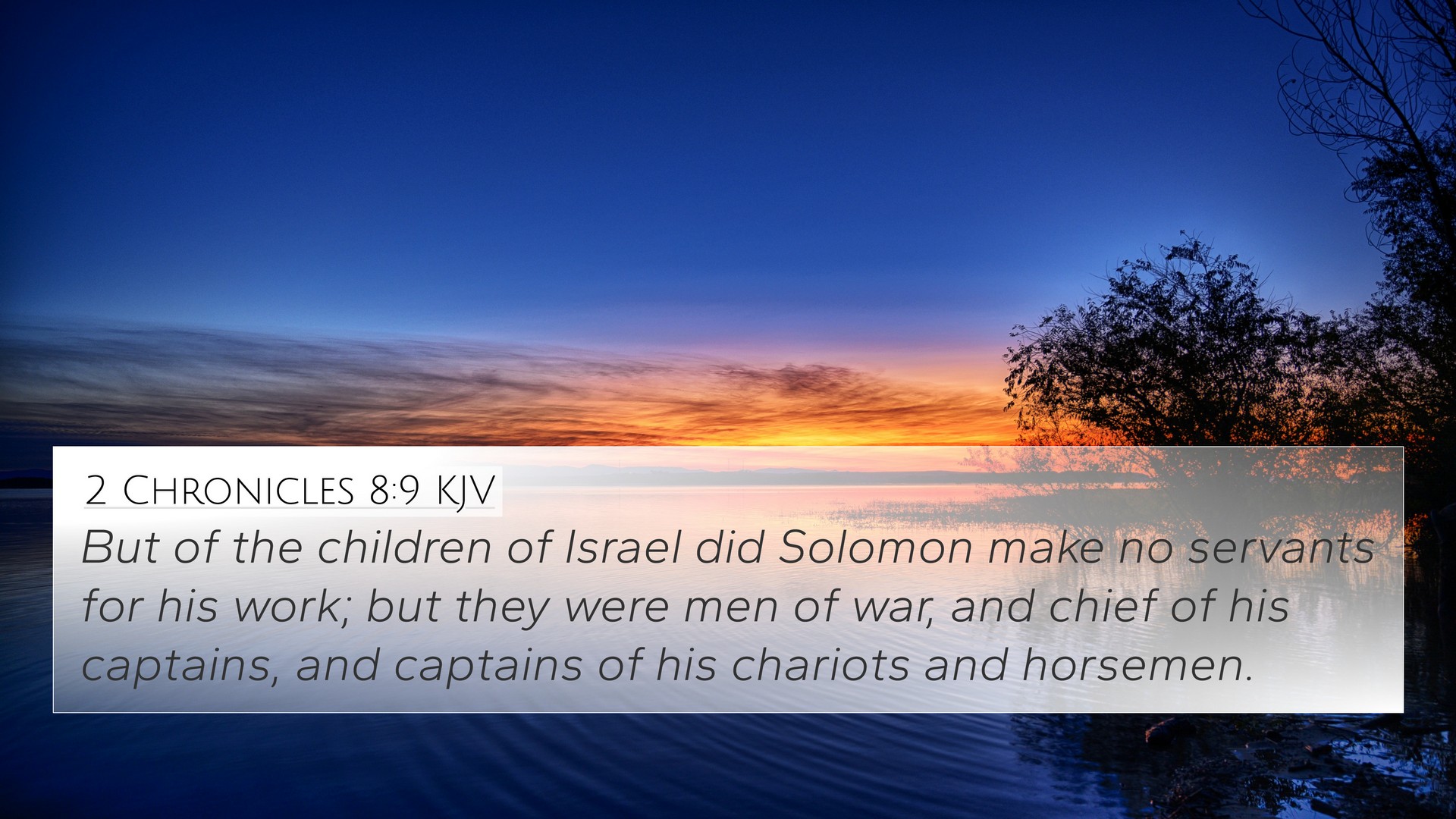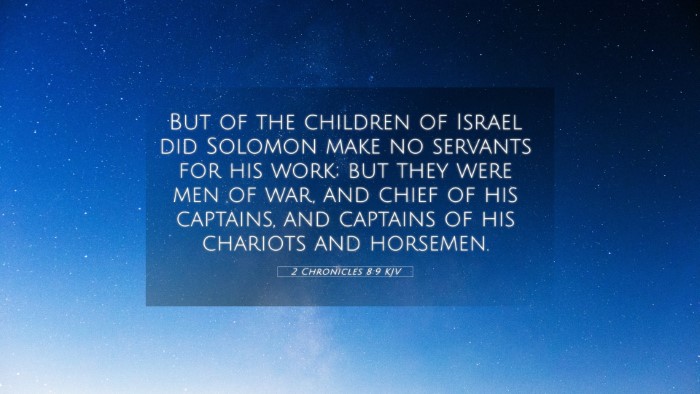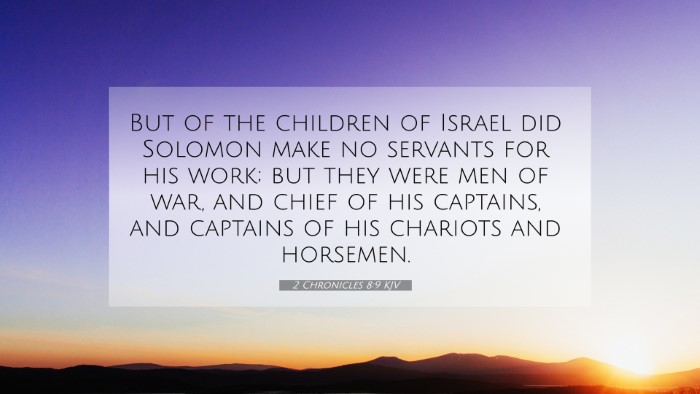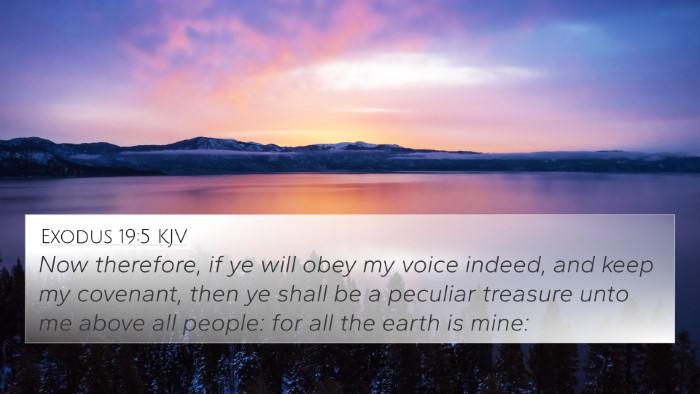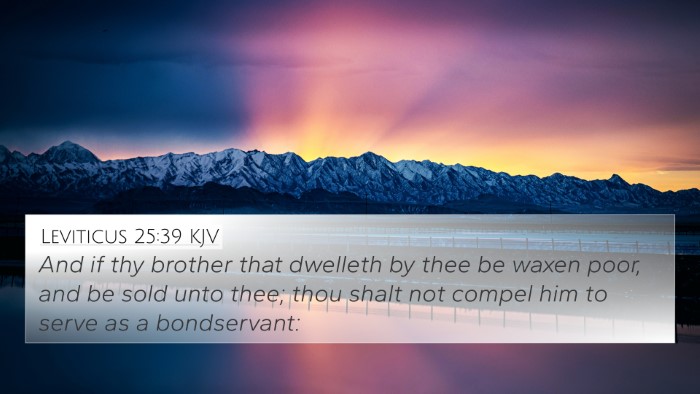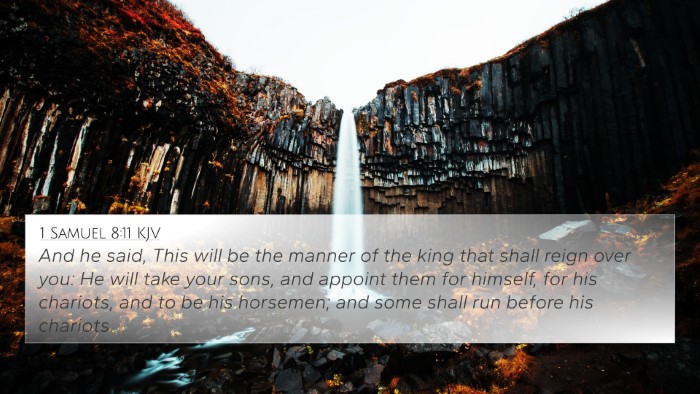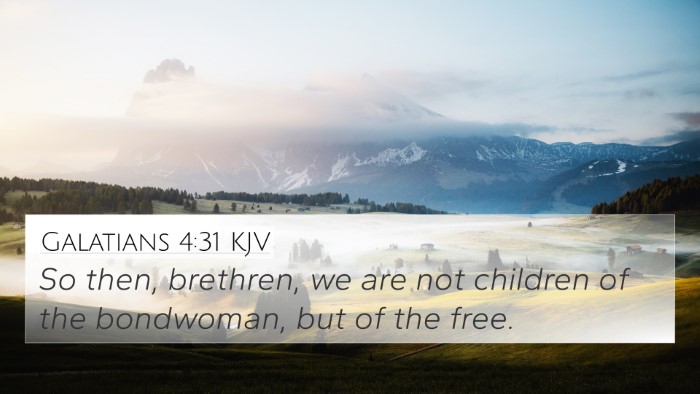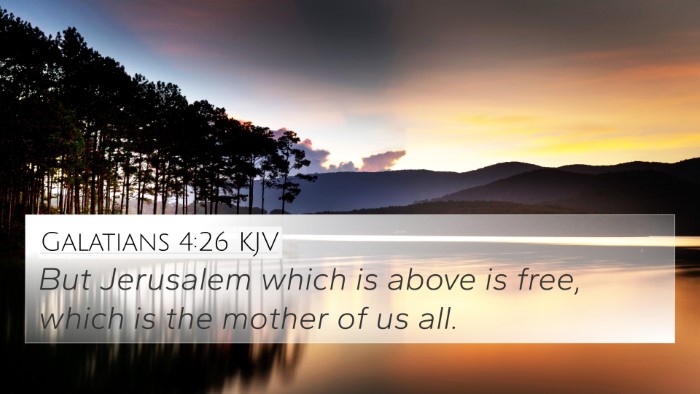Understanding 2 Chronicles 8:9
Verse: 2 Chronicles 8:9 - "But of the children of Israel did Solomon make no servants for his work; but they were men of war, and chief of his captains, and captains of his chariots and horsemen."
Meaning and Analysis
This verse highlights the unique approach of King Solomon in his governance and building projects. Rather than employing the Israelites as laborers, he chose to utilize their military leaders and skilled men for specific roles. This suggests several key themes and implications:
- Leadership and Governance: Solomon's decision reflects a strategic choice in leadership, valuing the strengths of his people while delegating tasks that align with their skills.
- Military Focus: The reference to "men of war" implies that Solomon recognized the importance of military prowess in maintaining peace and stability during his reign.
- Community Involvement: By selecting leaders of the army and other significant roles, Solomon emphasizes the value of experienced individuals in shaping his kingdom's future.
- Divine Favor: Solomon's reign is often highlighted for its wisdom and prosperity, suggesting that his approach was favored by God, as seen in earlier chapters.
- Contrast in Labor: This mention also contrasts with the forced labor seen in the reign of previous rulers, indicating a more benevolent form of governance focused on communal responsibility.
Comparative Analysis
When considering the broader context, we can cross-reference this verse with various other parts of Scripture, enriching our understanding through connections between Bible verses:
- 1 Kings 5:13-14: This passage parallels the narrative by explaining how Solomon leveraged his resources to build the temple.
- Exodus 1:11: This verse addresses the forced labor of the Israelites in Egypt, providing a stark contrast to Solomon's actions.
- 2 Chronicles 2:2: Here, Solomon organizes labor for temple construction, emphasizing a structured approach to leadership.
- 1 Chronicles 28:1: This highlights David gathering all leaders for the purpose of establishing Solomon’s reign, further connecting the leadership continuity.
- Romans 12:4-8: This New Testament scripture talks about the diversity of gifts within the community, akin to Solomon's acknowledgment of his people’s capabilities.
- Proverbs 11:14: This speaks generally on the importance of counsel in governance, linking back to Solomon’s wise choices in leadership.
- Matthew 20:26-28: Jesus teaches about servant leadership, drawing a parallel to Solomon's method of utilizing leaders within his reign.
Inter-Biblical Dialogue
In understanding 2 Chronicles 8:9, we may engage in an inter-Biblical dialogue that brings together themes spanning both the Old and New Testaments:
- Wisdom in Leadership: The wisdom of Solomon as highlighted throughout his reign (Proverbs 1:5; James 1:5) illustrates the application of wisdom in governing.
- Work and Rest: This can be connected with Genesis 2:15, where man is called to work and keep the garden, emphasizing productive work as a divine calling.
- Heritage of Leaders: Similar to the commissioning of leaders in Exodus 18:21, the narrative explores the importance of appointing qualified individuals in leadership roles.
Bible Cross-Reference Tools
For those wishing to further explore the connections within the Bible, consider the following tools and resources:
- Bible Concordance: Use a concordance to find specific terms and their occurrences throughout scripture.
- Cross-Reference Bible Study: Engage in studies that emphasize cross-referencing verses to uncover deeper meanings.
- Comprehensive Bible Cross-Reference Materials: Utilize guides that catalog relationships among verses.
Conclusion
In summary, 2 Chronicles 8:9 illustrates King Solomon's strategic leadership decisions and highlights the importance of utilizing strengths within the community. By examining cross-referenced verses, one can gain a more profound comprehension of biblical themes related to leadership, governance, and community. Understanding these connections aids in developing a comprehensive view of scripture, enriching the experience of Bible study.
